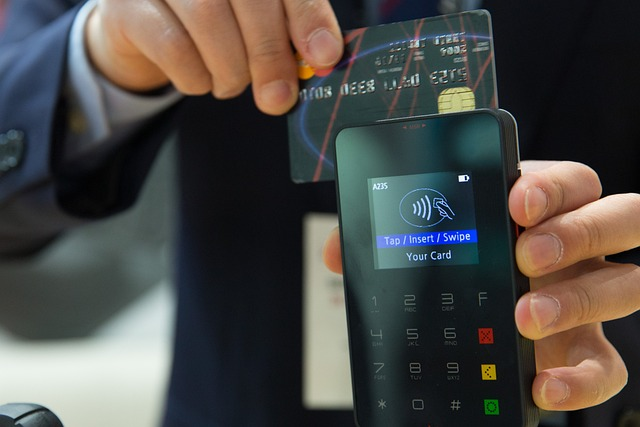What is a Business Credit Card?

A business credit card is like a personal credit card but has unique perks for business owners. They typically have much higher credit limits as well.
There are many business credit cards, and they all offer different rewards. Some are barely indistinguishable from a personal credit card, while others include business-focused features such as enhanced rewards, business travel perks, unlimited employee cards, and more.
Many startups and younger businesses can acquire a business credit card before they’re established enough to qualify for small business loans. This can help cover business expenses while building a company and generating revenue.
More established businesses also use credit cards because they get access to advanced business perks, such as discounts for using certain vendors. Even when a company doesn’t use the card regularly, it can be an excellent backup option for emergency or unexpected costs.
How do Business Credit Cards work?

Credit cards provide a revolving line of credit. You can charge the card up to the defined credit limit.
You’ll only pay interest on charges against the credit limit, which could be a purchase, cash advance, or balance transfer in some cases. Your credit limit replenishes as you repay what you use (plus interest and applicable fees). You can use the card indefinitely if you don’t exceed the credit limit or miss payments.
Business credit cards use an annual percentage rate (APR), ranging from 13% (or 0% introductory rate) to over 40%. Your personal and business credit, the credit card issuer, and the type of credit card all factor into your APR.
The interest gets applied at the end of the monthly billing cycle. You can avoid interest payments if you pay off the balance before the billing cycle ends.
Business credit cards often offer:
- Multiple employee cards to add to your account.
- Higher credit limits.
- Special rewards, perks, or bonuses.
- Business-focused card features, such as spending reports and monitoring.
What type of Business do I need for a Business Credit Card?

Many entrepreneurs and business owners ask if their company must be formed as a specific legal entity, such as a limited liability company (LLC) or corporation. Fortunately, any business structure could qualify for a business card.
This includes:
- Freelancers & independent contractors.
- Sole proprietorship.
- General partnership.
- Nonprofits.
- LLCs.
- S-Corporations.
- C-Corporations.
While some cards, such as corporate credit cards, might only be available for larger enterprises, business credit cards are available for all business sizes. In some cases, getting small business credit cards before or without forming a legal business entity might be possible – but forming your business first is generally recommended.
What are the different types of Business Credit Cards?
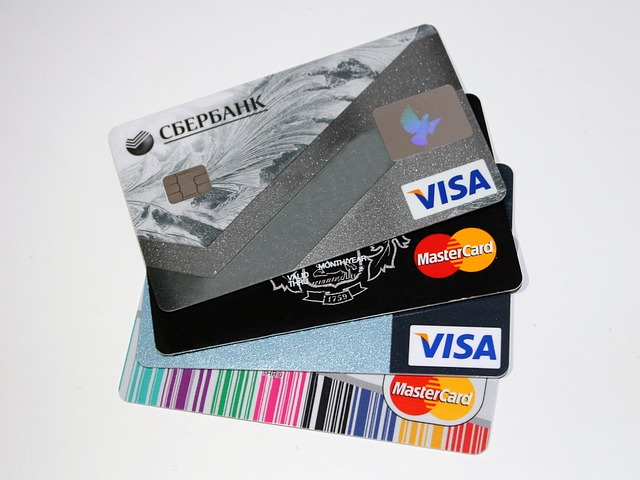
Before applying, you should research the types of cards available and which best match your business’s spending patterns. Take a look at your expenses over the past several months.
Note if you spend more on traveling, treating clients to dinners or events, or purchasing more from certain vendors. This can help you decide the type of card that’s best for your business.
Cash Back Cards
One of the most used business credit card types is a cash-back card, which gives cash rewards for everyday spending. Some cards provide a flat rate for every dollar spent, such as 2% or 1% back.
Other cash-back cards might have rolling incentives. For example, one quarter might give 5% for gas purchases, then change to 5% for restaurant spending in the next quarter.
You might also find business credit cards that offer fixed percentages for everyday business purchases and extra cash back for eligible purchases. For example, a card might offer 3%-5% back for buying from a specific vendor and 1%-2% back for all other business purchases.
Rewards & Perk Cards
Some cards offer rewards or perks besides cash back. Some might offer discounts for purchasing from their partners. For example, you might get a discount for buying from a particular office supply company.
Travel Cards
A travel credit card provides miles or points that can be redeemed for travel expenses. Some offer rewards for everyday purchases and bonus miles or points for travel-related expenses, such as purchasing a flight, booking a hotel room, or renting a car.
You can also look into co-branded cards if you prefer using a single airline or hotel chain, such as a United Airlines Business Credit Card or Hilton Honors American Express Card.
Secured Business Credit Cards
A secured business credit card might be a good option for new business owners or those with a low credit score. Most credit cards don’t require any form of collateral, making them unsecured.
In contrast, a secured credit card requires a security deposit to activate the credit line. The extra security for the credit card issuer makes it more likely to get approved.
What are the advantages of a Business Credit Card?
One of the primary benefits of a business credit card is that it’s often more accessible than other forms of business financing, such as a traditional business loan. As mentioned, new businesses can usually get a business credit card before qualifying for other funding options. There are also business credit cards for bad credit.
Business credit cards help separate your personal and business finances. This can be a significant advantage when starting out, as young businesses often fall into the trap of mixing finances (sometimes unavoidable).
Opening a credit line helps protect businesses from emergency expenses. You can use the card to smooth out cash flow gaps for unexpected costs.
Once you open a business credit card and start using it, you can begin building business credit history. Ensure the credit card issuer you use reports to the business credit reporting agencies. There are several business credit bureaus, but the big three are Experian Business, Equifax Business, and Dun & Bradstreet.
Most business credit cards also have higher credit limits than personal credit cards. That’s because of the types of expenses businesses incur and higher revenue streams.
As mentioned, many business credit cards come with unique rewards and perks for businesses. You could maximize the value of your card using the correct rewards program for your business needs.
What are the disadvantages of a Business Credit Card?
Most business credit cards are the personal responsibility of the business owner. You may have to sign a personal guarantee to get approved. The card’s balance becomes your personal debt if the company cannot pay it.
That means any late payments, delinquencies, or defaults impact your personal credit score. Mismanaging a business credit score could significantly lower your score.
The APR on credit cards is usually much higher than business loan interest rates. You can avoid this by paying your balance off every month, but you could pay a lot of interest if you carry a balance month-to-month.
Some business credit cards come with extra fees, such as an annual fee. Those can increase your costs.
While there are options for bad credit, the best business credit cards usually require excellent credit. You’ll usually have a lower limit and fewer rewards if you don’t have good credit.
Business Credit Card Pros & Cons

Pros:
- More accessible than traditional business loans.
- Helps separate personal and business finances.
- It can help establish and build business credit.
- Helps smooth cash flow during unexpected expenses.
- Higher credit limits than personal credit cards.
- Many cards offer unique business rewards & perks.
Cons:
- The business owner is personally responsible for the card’s balance.
- Might require signing a personal guarantee.
- Credit card APRs can be expensive if you carry a balance.
- Some cards have extra fees that drive up your costs.
- The most advantageous business credit cards require excellent credit.
How do I compare Business Credit Cards?
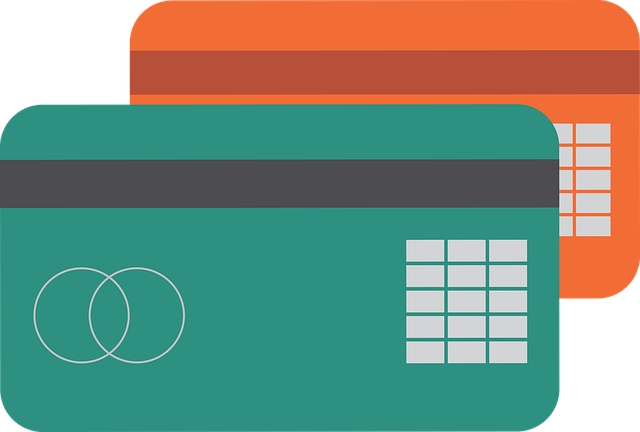
Here are some important considerations when comparing credit cards. This can help you narrow down the best business credit card for your company.
Qualifications
The first thing to determine is if you’re eligible for the card. Check the credit score requirements to see if your score aligns with it. Look for additional requirements, such as business size, time in business, etc. Typically speaking, “business credit cards” are for small to mid-size businesses (SMBs), while “corporate credit cards” are for larger enterprises.
APRs & Fees
Next, you’ll want to compare costs. Look for cards that offer low APRs and fewer fees. Some might offer a low APR but a higher annual fee. Other fees to consider are foreign transaction fees, late fees, and administrative fees.
Welcome Offers & Sign-Up Bonuses
Some credit card issuers market to businesses by offering special incentives to sign up. Some might offer a cash sign-up bonus for spending a certain amount within a defined period.
Introductory 0% APR
One of the most beneficial new card offers is a 0% introductory APR. It might offer this advantage for 6, 12, or 18 months. During that time, you can use the card to cover expenses. You need to make at least the minimum monthly payment and pay off the balance in full before the trial ends. If you still carry a balance at the end of the 0% APR period, you might have interest applied retroactively.
A 0% APR can be particularly beneficial for balance transfers. You could save interest by transferring a balance to the 0% APR card and paying it off before the period ends.
Rewards Program
As mentioned, many business credit cards offer rewards programs. Compare the available options to see what best aligns with your business needs.
Keep an eye on how redeeming rewards works as well. Some rewards expire if you don’t use them in a certain period.
Card Benefits
Many business credit cards also offer unique benefits to business owners. For example, some cards let you add a limited or unlimited number of employee cards. If you need to issue employee cards, ensure the card you get can handle the volume you need.
Also, look for cards with tools to monitor and control employee spending. Some will provide convenient reporting tools to make writing off employee expenses from your taxes easier.
What do I need to Apply for a Business Credit Card?

Here are the steps to take before applying for a business credit card.
Check Your Credit
Most business credit card companies review your personal credit history when you apply. It would be a good idea to know what’s in your personal credit report ahead of time.
You’ll want to check your credit score and compare that to the card issuer’s credit score requirements. You should also look for and correct any incorrect information in your credit report, which can boost your score.
Research Your Options
Once you know what types of cards you can qualify for, you’ll want to compare the differences between the available options. You can use the comparison tips above to help you find the right business credit card for your company.
Prepare Your Info
You’ll typically provide the following personal and business information on a business credit card application:
- Your name and contact information.
- Legal business name and DBA names.
- Business contact information: address, phone number, and email.
- Legal business structure.
- Federal tax ID (EIN or SSN).
- Number of employees.
- Annual business revenue (estimated revenue from your business plan if startup).
- Estimated monthly expenses.
Limit Current Debt
Avoid maxing out any current credit cards before you apply. If possible, pay off any balances, especially if your credit utilization ratio is above 30%.
Apply Sparingly
Each new credit card application results in a hard credit inquiry, which can lower your FICO score by 5 points. Some credit card companies will deny requests if there are too many recent inquiries.
This is why it’s essential to research cards ahead of time. You want to ensure you only apply for a card where you meet the qualifications and it offers the rewards you want.
Some business credit card companies let you apply for pre-eligibility. While this doesn’t guarantee approval, it lets you see your options with only a soft credit pull that won’t affect your credit score. This can be a good way to compare credit cards.
Frequently Asked Questions
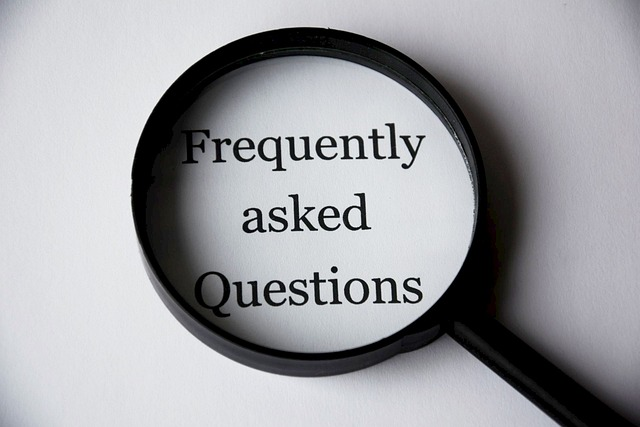
Here are the most common questions about getting a business credit card.
Can Startups get Business Credit Cards?
One of the advantages of a business credit card is that you don’t always need an established business history to qualify. Since many credit card companies use the business owner’s personal credit score as a determining factor, it’s easier for startups to get business credit cards than business loans.
Do I need an EIN to get a Business Credit Card?
You don’t necessarily need an employer identification number (EIN) to apply or get approved for a credit card. The credit card company will use your social security number if you don’t have an EIN.
However, it’s still recommended to form your business as a legal entity and get an EIN or tax ID. Two of the main benefits of using a business credit card are that it helps separate your personal and business finances and build business credit.
Establishing your business and getting an EIN is usually necessary for building business credit and helps further separate your finances.
Can I get a Business Credit Card with Bad Credit?
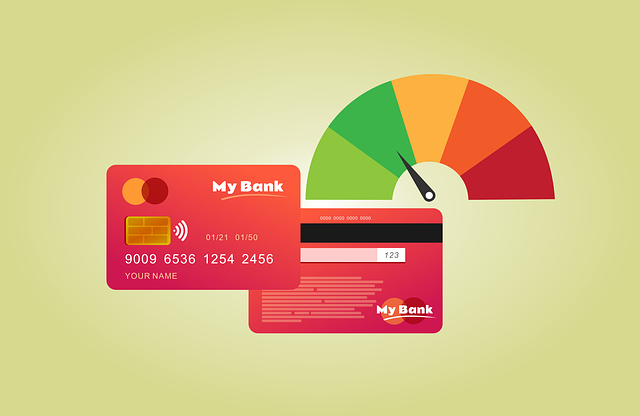
Credit-challenged business owners will likely have more luck getting a business credit card than a traditional business loan. However, your options will still be limited.
Most business credit cards require a FICO score of 670 or better. The most beneficial cards – those with low APRs, high limits, rewards and perks, and no annual fee – usually require excellent credit, which is a FICO score over 740.
There are still options for fair or even poor credit scores. But those cards will often have limitations, such as:
- Requiring a security deposit (known as a secured credit card).
- Annual fees.
- Low credit limit.
- High APR.
- Increased fees.
- Few or no rewards or bonuses.
In addition to credit card cards, there are also bad credit business loans. You’ll typically have to go through an alternative lender or lending marketplace for a bad credit business loan.
What are my alternatives to Business Credit Cards?
Business credit cards are just one funding option for small businesses. Here are some viable alternatives.
Trade Credit
Trade credit, also called supplier or vendor credit, lets you purchase needed business supplies and materials on credit. Vendors often offer terms of net-30 days, meaning you’ll have 30 days to pay the invoice after receiving the goods or services. Look for vendors that report trade credit activity to the business credit bureaus to help establish a build business score.
Equity Funding
Equity funding refers to raising money by bringing in investors. Essentially, you’ll sell a small share of your company for an infusion of cash. Some investors may want a controlling interest with a board seat, while others are silent partners.
Personal Credit Cards & Loans
You should keep your personal finances separate from business finances. However, in some cases, using a personal credit card or personal loan might be necessary to cover business expenses, especially in the early stages. If you use this method, create separation between your finances as soon as possible.
Small Business Loans
A small business loan is one of the best ways to fund a business. While you might have trouble qualifying for a traditional small business loan from a bank or credit union, many alternative lenders and marketplaces offer more accessible loan options.
You might be interested in:
- Bad credit business loans.
- Business lines of credit.
- Business loans for women.
- Business term loans.
- Equipment financing.
- Invoice/receivables factoring.
- Merchant cash advance.
- Revenue-based business financing.
- SBA loans.
- Working capital loans.
- ERTC advances.
How to Get a Business Credit Card – Final Thoughts

A business credit card can provide necessary funding and extra rewards, but you should use caution when applying for and using a business credit card. Mismanaging a credit card, such as carrying too a balance or missing payments, can significantly hurt your business and personal credit.
It would be best to try to check your credit and improve your score before applying. The higher your personal credit score, the lower your interest rate. It also helps access higher credit limits and more robust rewards programs.
Look for business credit cards offering perks and benefits to help your business. You should compare your options and look for the most advantageous credit card you can get.
Contact us if you have more questions on business credit cards or want to apply for a small business loan. Our alternative business financing experts can help you find the best funding options for your business goals.


